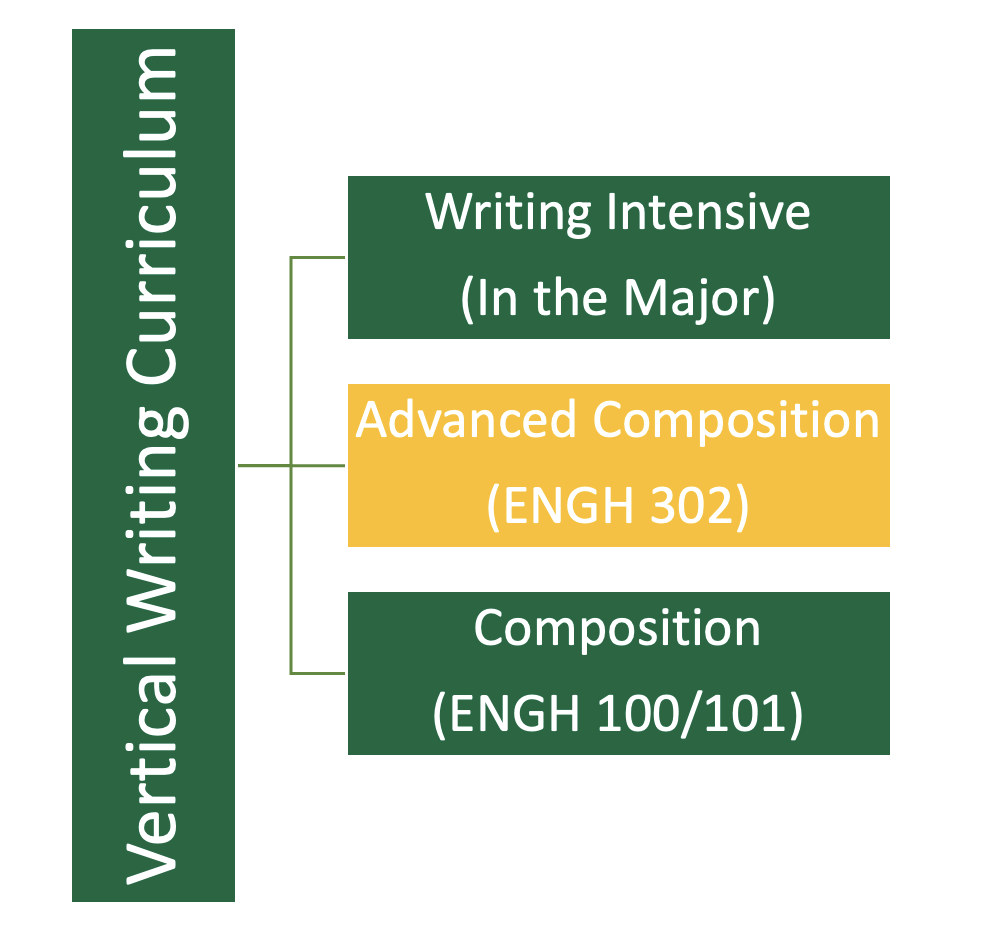 The Mason Core curriculum offers students a signature opportunity to develop writing competencies across their educational experiences that prepares them to participate in a variety of academic, professional, and civic communities. It does so in part by providing students with a “vertical” writing curriculum: a carefully sequenced series of Composition and Writing Intensive courses designed to facilitate the long-term growth of writers as they develop expertise in communicating knowledge, particularly disciplinary knowledge, across a range of contexts and audiences.
The Mason Core curriculum offers students a signature opportunity to develop writing competencies across their educational experiences that prepares them to participate in a variety of academic, professional, and civic communities. It does so in part by providing students with a “vertical” writing curriculum: a carefully sequenced series of Composition and Writing Intensive courses designed to facilitate the long-term growth of writers as they develop expertise in communicating knowledge, particularly disciplinary knowledge, across a range of contexts and audiences.
Across the lower- and upper-level Written Communication courses, students learn to use writing to explore, construct, and communicate knowledge. Written Communication (upper-level) (English 302), the second course in George Mason’s vertical writing curriculum, builds on student learning through advanced rhetorical analysis, inquiry-based research into a variety of scholarly and public perspectives, and writing oriented toward investigating, engaging with, and responding to meaningful disciplinary questions in a variety of academic and non-academic contexts.
Learning Outcomes:
Upon completing the Written Communication (upper-level) course, students will be able to:
1. Analyze rhetorical situations–audience, purpose, and context–in order to recognize the expectations of readers and understand the main purposes of composing across multiple contexts relevant to their fields of study.
2. Understand the conventions of academic and non-academic genres, to include usage, specialized vocabulary, format, and attribution/citation systems.
3. Apply critical reading strategies that are appropriate to advanced academic and non-academic texts of relevance to their fields of study.
4. Identify and synthesize multiple perspectives in articulating and refining a research question relevant to their fields of study.
5. Engage in a recursive process of inventing, investigating, shaping, drafting, revising, and editing to produce a range of academic and non-academic texts of relevance to their fields of study.
Required: English 302
Prerequisites:
Students are advised to complete the ENGH 302 version that is most relevant to their major field or postgraduate professional plans. All students are welcome to take ENGH 302-Multidisciplinary. Students should take ENGH 302 by the end of their junior year, so that they may incorporate their new knowledge into senior-level research and writing projects in their major field and in writing intensive courses.
All students who register for ENGH 302, regardless of discipline, must meet the following prerequisites:
- Completion of a minimum of 45 credit hours
- Credit (at least a C) or waiver for ENGH 100 or ENGH 101
- Completion of the Mason Core literature requirement (see information at the Mason Core website)
Note: The College of Engineering and Computing requires students to take specific versions of ENGH 302. If you are a student with the College of Engineering and Computing, you must talk with your advisor and make sure you are enrolled in the correct version of ENGH 302.
